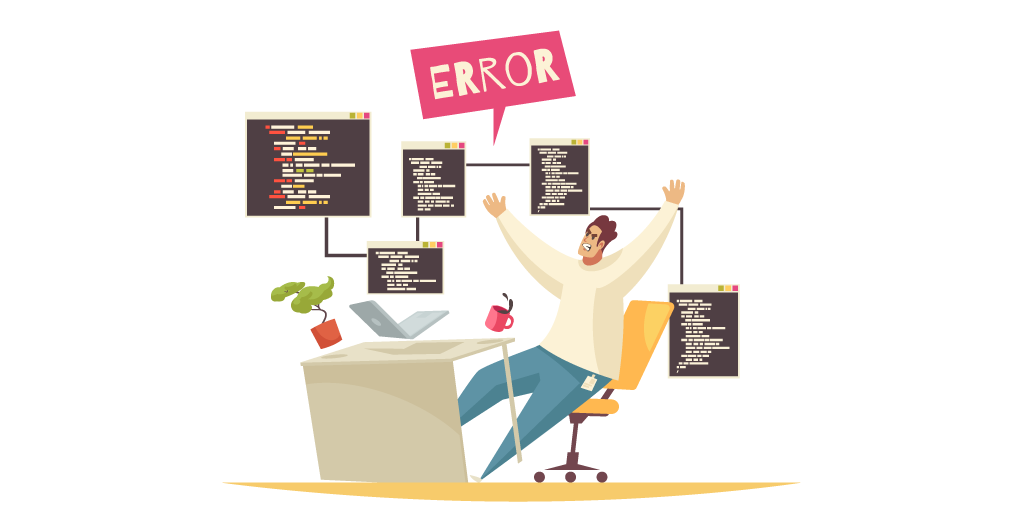For beginners, learning the law can take time and effort. You buy a ton of educational inventories. Books, online classes, lectures, and some free coffers are all part of an instigative trip for you. You have much to learn and want to take in as important information as possible. It would help if you left to start working as a programmer. But after two or three months, your approach or Software Development Trends need to be helping you gain results as a programmer.
Indeed, though you are reading a lot of material, you are still getting closer to becoming a programmer at the end of the day. It indicates that you are making some miscalculations as you learn to decode. This blog post will discuss some typical blunders programmers should avoid when they first know the language.
Top Mistakes To Avoid in Software Development
1. Learning Too Many Programming Languages, Frameworks, and Technology
It is a standard error newcomers make when they’re first law-literate. It’s foolishness, not a sign of intelligence if someone does not know Java, C, Python, or many other languages, fabrics, or technologies well enough to demonstrate them to someone or put on their capsule.
Still, you’ll ultimately need clarification. If you spend fifteen days learning Java, switch to Ruby because Java is delicate or for another reason. While multilingualism can be profitable, an outsourcing software development company suggests that you concentrate on just one at first. Moving to a new language will be accessible once you have experience. If you make this mistake, you’ll ultimately discover that you must become a fluent speaker of any language.
2. Writing Messy Code And Ignoring Code Quality
One can quickly tell from a code’s format whether a programmer from a Software Development Company is inexperienced or skilled. The following errors are frequently made by novices when formatting code:
- The code needs to be properly indented.
- Everything is placed on a single line, or there is inconsistent use of white space and new lines.
- There are better ideas than writing a significant function or putting all the data into one line, position, or file.
- Variable and function names shouldn’t make sense (AbshdhhDdhjdjdXyshdb, for instance, is not a good name). Both small and large cases are given variable names at random. Over Commenting or not commenting enough when coding
3. Thinking You Know It All
Seeing newcomers’ code execute flawlessly is a thrilling and remarkable experience. After much time and effort, they have finally created a program that functions. Once you get the hang of coding, you become more self-assured and begin passing on your knowledge to others.
Learning new things is always rewarding, but what if you looked at some of the more intricate projects accomplished programmers have made on GitHub? Or some of your code that top IT outsourcing companies wrote a few months ago. You can still refactor your code and make some additional modifications. Even seasoned programmers run into this issue. It would help if you always remembered that programming is a marathon with no finish line.
4. No Backup For Work
This is a mistake that any programmer, especially a neophyte, can make. You’ve been working on a design for months, and two weeks later, all of your hard work is gone because you did not coagulate your computer. Nothing will pay attention to you if you lose X hours of work because your system crashed or just a portion of it did. You need to be more suitable to make a reason in this situation, so programmers and beginners should regularly back up their work.
Understand how to use Github, Dropbox, or source control( SVN or Git) to save your work on time. Hence, this can be one of the benefits of outsourcing software development.
5. Laziness in Doing Practice
Reading thousands of lines of code is only worthwhile if you have programming experience. Reading about coding in theory is different from actually practicing it. The most important thing a programmer can do is code. In the beginning, you are likely to be committing numerous errors while writing the code. Initially, you may think that everything you read sounds just perfect. But as soon as you begin to code, IT outsourcing solutions will find that you need to become an expert at everything.
At first, writing a loop will be challenging since you will need to know when to use braces or semicolons. Nevertheless, you must practice writing code, get your hands dirty, find some mistakes, debug them, and eventually understand how the various parts fit together.
6. Debugger
Debugger canons display a program’s logical conclusion for a specific section. Therefore, everything can be audited as variable values, and the programmer can go through each line by line. Debuggers for utmost languages come with various features, similar to graphical stoner interfaces and the capability to set breakpoints inside the best software outsourcing companies.
7. Bug Tracker
It’s a bug-tracking reflection system, an essential element of any software design. By keeping this” bug train,” you can sometimes help lose indispensable data in resolving issues when the program is being developed. With a bug shamus, tracking and identifying bugs is easier because we’ve to calculate on our own or a Software Development Services Company scattered notes or memory.
Conclusion
Yes, with hard skills, coding is possible. Nevertheless, soft skills like collaboration, communication, and presentation will dictate how well you advance your projects, regardless of your position. Great businesses search for individuals who bring value to the work rather than just those who can perform the task. Get in touch with IT software outsourcing services for the best results.







